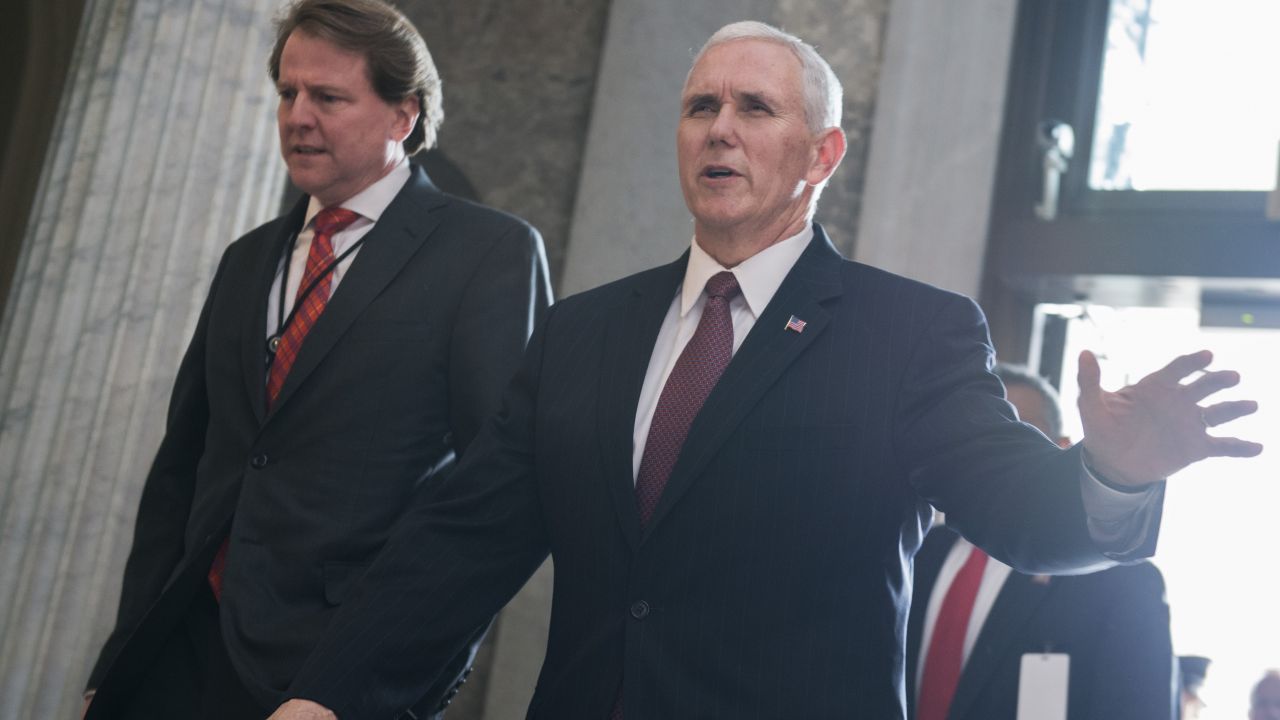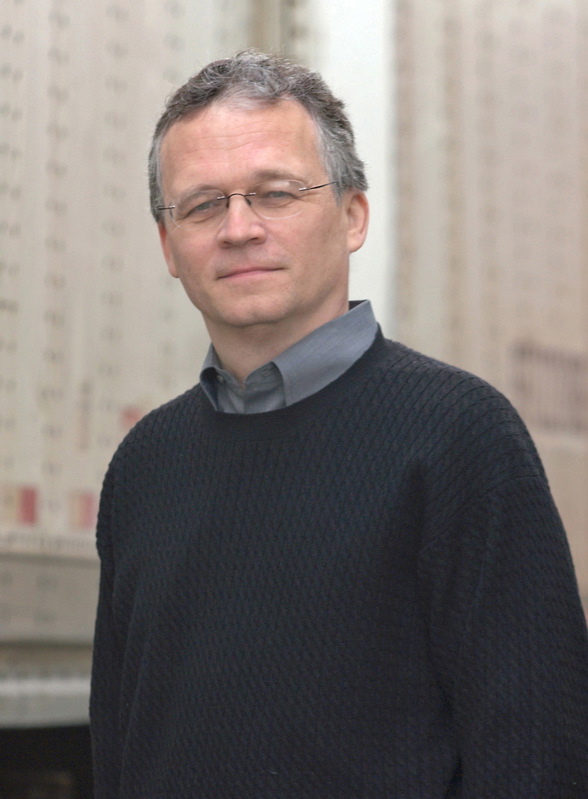
Vice President Mike Pence and White House counsel Don McGahn arrive in the Capitol on the day the Senate voted to confirm Neil Gorsuch as the next Supreme Court justice on April 7, 2017. (Photo by Tom Williams/CQ Roll Call)
Former White House counsel John Dean counted 21 lawyers involved in Watergate wrongdoing. Among the most prominent were President Richard M. Nixon, White House domestic affairs adviser John Ehrlichman, Attorney General John Mitchell, Nixon’s personal attorney Herbert Kalmbach, White House special counsel Charles Colson, Egil “Bud” Krogh — who headed the “Plumbers” unit involved in the break-in — and Dean himself. History may not repeat itself, but sometimes it rhymes.
Obstructing justice requires more than a president’s single-handed efforts. It’s a team sport. Whether intentional or unwitting, complicit attorneys bring a unique disgrace to their profession and do enormous damage to the country. Upon admission to the bar, all of Trump’s advisers with JDs swore an oath to defend the Constitution and uphold the rule of law. Beginning the week of Oct. 1, many of them could face tough questions about whether they witnessed or participated in criminal wrongdoing at the highest levels of government.
At the moment, special counsel Robert Mueller has Trump’s former campaign chairman Paul Manafort (JD, Georgetown, ’74) in the hottest seat. But Mueller has also informed the White House that he wants to interview at least three lawyers who are present or former staffers. Others inside and outside the White House could join that line.
If he is following a typical prosecutorial approach — working from the bottom up in questioning witnesses who may have information pertinent to the investigation — Mueller has already reached rarified air. One of his early picks now sits in the office that John Dean once occupied: White House counsel Don McGahn (JD, Widener, ‘94), who reportedly has “a couple documents” so sensitive that he keeps them locked in a safe and away from Trump’s personal attorney, Ty Cobb (JD, Georgetown, ’78). Thanks to Cobb’s recent public comments over lunch with another Trump attorney, John Dowd (JD, Emory, ’65), Mueller can now be quite specific in seeking that material.
Long before the Cobb-Dowd luncheon that will become a case study in law school courses on professional irresponsibility, Mueller said he wanted to speak with one of McGahn’s deputies, James Burnham (JD, University of Chicago, ’09). Burnham was reportedly with McGahn on Jan. 26, 2017, when acting Attorney General Sally Yates told them about her concerns with then-national security adviser Michael Flynn. Yet for more than two weeks after that briefing, Flynn remained in the nation’s most sensitive national security post. Reasonable investigators might want to know what McGahn did to protect the country during that period. After all, the White House counsel is not any president’s personal attorney.
The third lawyer on Mueller’s current request list is Reince Priebus (JD, Miami, ’98). Other than as an indefatigable Trump defender, Priebus’ role in the Flynn episode is unclear. But Priebus was at the center of another Trump firestorm: the cover-up relating to the firing of FBI Director James Comey.
Apparently, Mueller has not yet questioned other attorneys involved in the Comey cover-up, but everyone knows who they are. Jared Kushner (JD/MBA, NYU, ’07) spent the weekend at Bedminster, New Jersey, urging Trump to fire Comey. Then he reportedly joined Priebus, McGahn and Vice President Mike Pence (JD-Indiana-Robert W. McKinney, ’86) to draft talking points. Pence saw or heard Trump read aloud his four-page letter outlining the reasons he was firing Comey. Pence also took the cover-up to Capitol Hill.
A president’s outside attorneys are at risk, too. On July 12, 2017, one of Trump’s personal lawyers, Jay Sekulow (JD, Mercer, ’80), told ABC’s George Stephanopoulos that Trump had no role in drafting Don Jr.’s first misleading statement about the June 9, 2016 meeting between top Trump advisers and three Russians. “The president didn’t sign off on anything,” he said. Four days later, he told NBC’s Chuck Todd the same thing: “I do want to be clear — that the president was not involved in the drafting of the statement and did not issue the statement.” Sekulow’s best defense now is that he didn’t know what he was talking about.
Since Nixon’s impeachment, the seminal lesson of political scandals has been: “It’s not the crime; it’s the cover-up.” Eventually, the public will learn whether Trump’s advisers have heeded that lesson. When that day arrives, it could become an especially embarrassing moment for those with legal degrees.




